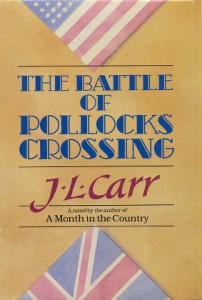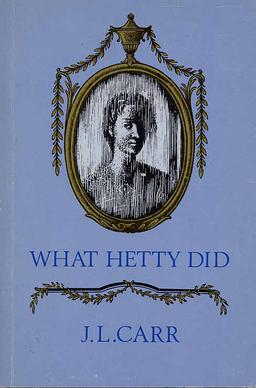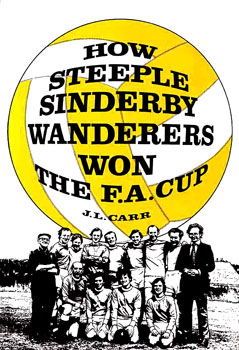
Jane Austen was an English novelist known primarily for her six novels, which implicitly interpret, critique, and comment upon the British landed gentry at the end of the 18th century. Austen's plots often explore the dependence of women on marriage for the pursuit of favourable social standing and economic security. Her works are an implicit critique of the novels of sensibility of the second half of the 18th century and are part of the transition to 19th-century literary realism. Her deft use of social commentary, realism and biting irony have earned her acclaim among critics and scholars.

Alan Sillitoe FRSL was an English writer and one of the so-called "angry young men" of the 1950s. He disliked the label, as did most of the other writers to whom it was applied. He is best known for his debut novel Saturday Night and Sunday Morning and his early short story "The Loneliness of the Long Distance Runner", both of which were adapted into films.

Eric Honeywood Partridge was a New Zealand–British lexicographer of the English language, particularly of its slang. His writing career was interrupted only by his service in the Army Education Corps and the RAF correspondence department during World War II.
Joseph Lloyd Carr, who called himself "Jim" or "James", was an English novelist, publisher, teacher and eccentric.
This is a bibliography of literary and historical works about cricket. The list is sorted by author's name. It is inevitably highly selective. The 1984 edition of E. W. Padwick's A Bibliography of Cricket had more than 10,000 entries.
The sport of cricket has long held a special place in Anglophone culture, and a specialised niche in English literature. Cricket is the official summer sport in England, and it is widely known as the "gentleman's game", owing to the unique culture of the sport and its emphasis on ideals such as grace, sportsmanship, character and complexity. Cricket has therefore often attracted the attention of the literati – Lamb, Hazlitt and Leigh Hunt were all players of the game – and some of the greatest English writers have written about cricket. This was particularly true in the era before the Second World War, for example, during the Edwardian era, and in the 1920s and 1930s.

Florence Nwanzuruahu Nkiru Nwapa, was a Nigerian author who has been called the mother of modern African Literature. She was the forerunner to a generation of African women writers, and the first African woman novelist to be published in the English language in Britain. She achieved international recognition with her first novel Efuru, published in 1966 by Heinemann Educational Books. While never considering herself a feminist, she was best known for recreating life and traditions from an Igbo woman's viewpoint.
Ralph Hammond Cecil Barker was an English non-fiction author with over twenty-five books to his credit. He wrote mainly about the Royal Flying Corps (RFC) and Royal Air Force (RAF) operations in the First and Second World Wars, and about cricket.
The Quince Tree Press is the imprint established in 1966 by J. L. Carr to publish his maps, pocket books and novels. The Press is now run by his son Robert Carr and his wife, Jane.
Barbara Irene Veronica Comyns Carr, known as Barbara Comyns, was an English writer and artist.

The Harpole Report is the third novel by J. L. Carr, published in 1972. The novel tells the story mostly in the form of a school logbook kept by George Harpole, temporary Head Teacher of the Church of England primary school of "Tampling St. Nicholas". The novel has attained a minor cult status within the teaching profession. The characters George Harpole and Emma Foxberrow reappear in Carr's eighth and final novel, Harpole & Foxberrow General Publishers and more briefly, What Hetty Did.

The Battle of Pollocks Crossing is the sixth novel by J.L. Carr, published in 1985. The novel was shortlisted for the Booker Prize in 1985 and followed a nomination in 1980 for A Month in the Country, his preceding novel.

A Day in Summer is the first novel by J. L. Carr, published in 1963. It is the story of an RAF veteran named Peplow who arrives in the fictional village of Great Minden on the day of its annual Feast, seeking retribution for the death of his son.

What Hetty Did is the seventh novel by J. L. Carr, published in 1988 when he was 76 years old. The novel describes the experiences of an 18-year-old girl. Hetty Birtwisle has been brought up by adoptive parents in the Fens; after a beating by her father, discovering that she was adopted, she flees to Birmingham where she has learnt she was born and alters her surname to Beauchamp.

Harpole & Foxberrow General Publishers is the eighth and last novel by J.L. Carr, published in 1992, just after his 80th birthday. The narrator of the story is Hetty Beauchamp, the heroine of What Hetty Did, who describes how George Harpole and Emma Foxberrow returned from working at a teacher-training college in Sinji, the setting of A Season in Sinji, to establish a small provincial publishing firm.

How Steeple Sinderby Wanderers Won the F.A. Cup is the fourth novel by J. L. Carr, published in 1975. The novel is a comic fantasy that describes in the form of an official history how a village football club progressed through the FA Cup to beat Rangers in the final at Wembley Stadium.
Charles Thomas Osborne was an Australian journalist, theatre and opera critic, poet and novelist. He was the assistant editor of The London Magazine from 1958 until 1966, literature director of the Arts Council of Great Britain from 1971 until 1986, and chief theatre critic of Daily Telegraph (London) from 1986 to 1991.
Merle Collins is a Grenadian poet and short story writer.
Paul Geoffrey Edwards was a wide-ranging literary scholar at the University of Edinburgh, appreciated for his "adventurous and unorthodox teaching".

Cyril Lionel Robert James, who sometimes wrote under the pen-name J. R. Johnson, was a Trinidadian historian, journalist, Trotskyist activist and Marxist writer. His works are influential in various theoretical, social, and historiographical contexts. His work is a staple of Marxism, and he figures as a pioneering and influential voice in postcolonial literature. A tireless political activist, James is the author of the 1937 work World Revolution outlining the history of the Communist International, which stirred debate in Trotskyist circles, and in 1938 he wrote on the Haitian Revolution, The Black Jacobins.











